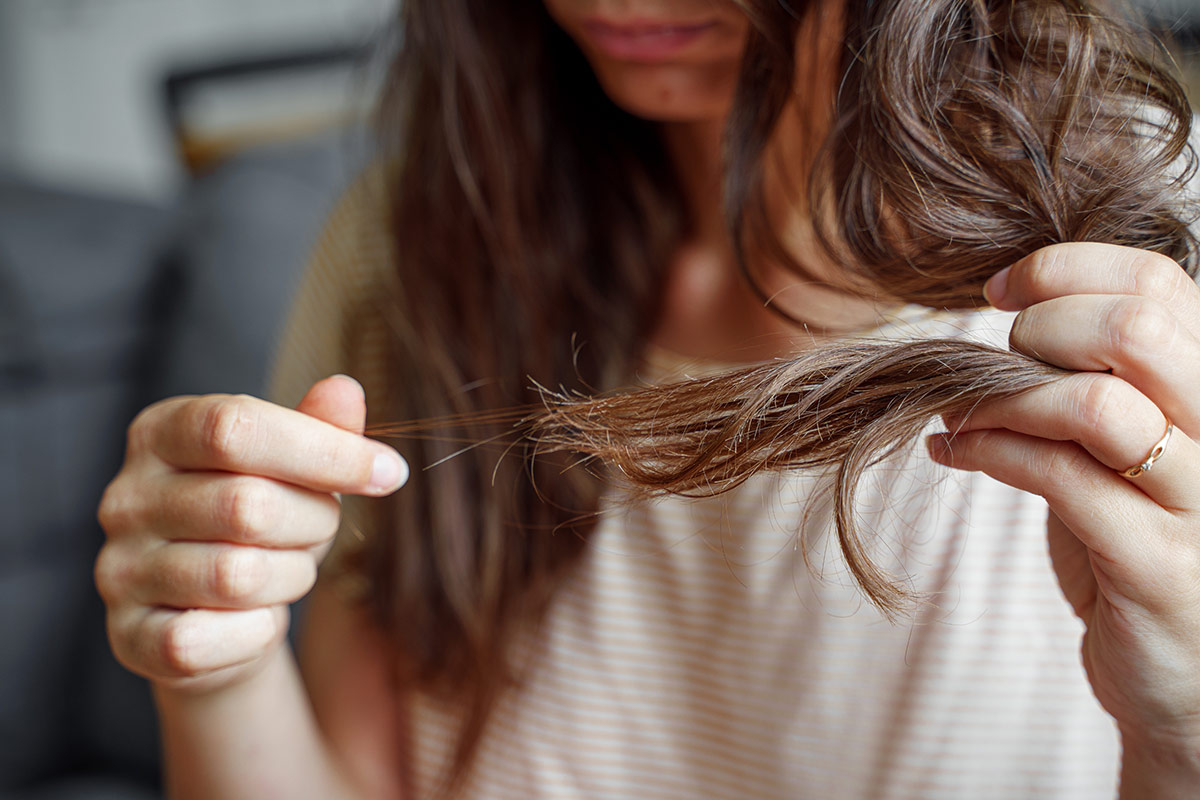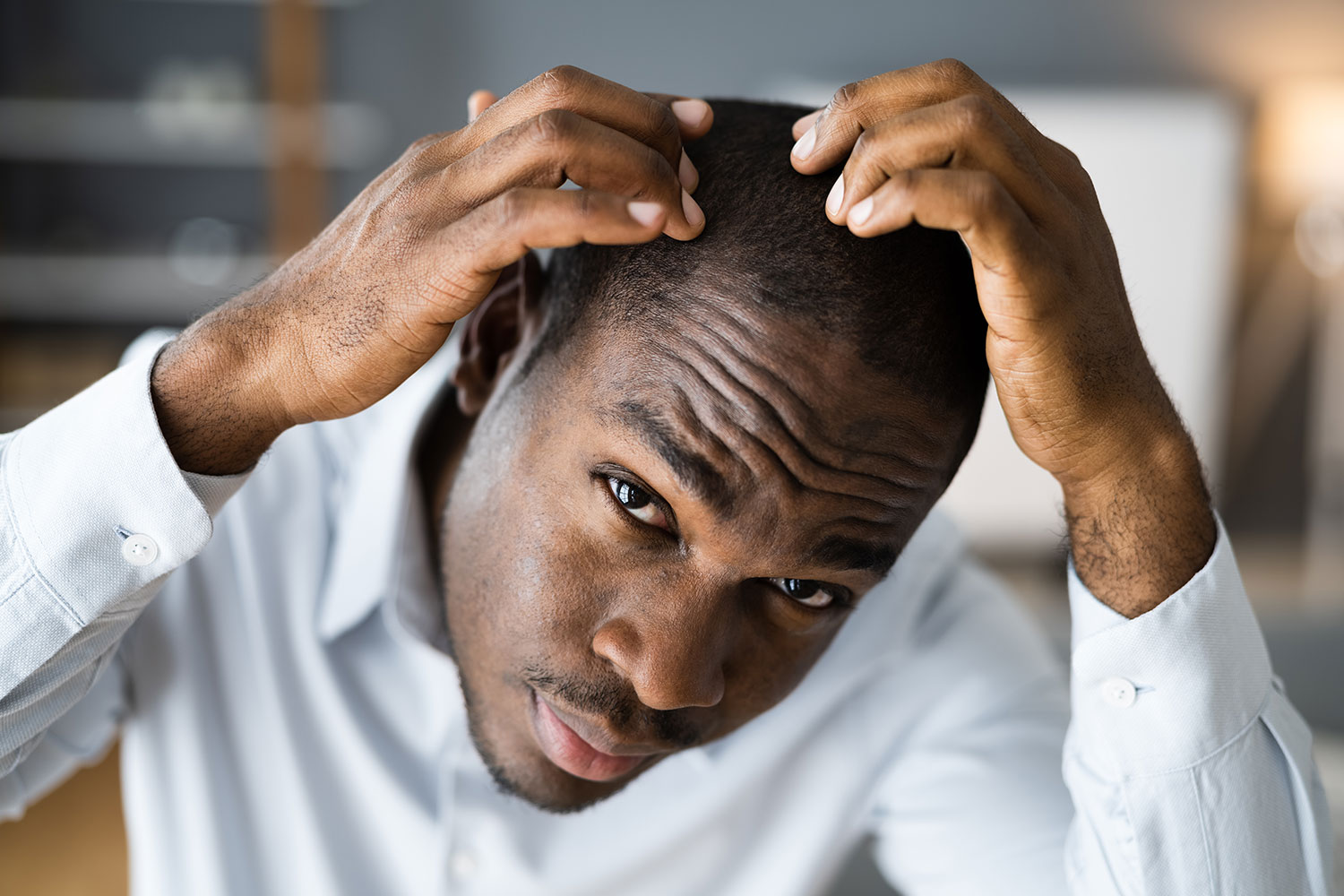
Post-Pandemic Trends in Hair Restoration: Understanding the Impact of Stress and Lifestyle Changes
The COVID-19 pandemic has brought about significant changes in our daily lives, from remote work arrangements to heightened stress levels and disrupted routines. Amidst these challenges, many individuals have found themselves grappling with the effects of stress and lifestyle changes on their overall health, including the health of their hair.
In this blog, we’ll explore the post-pandemic trends in hair restoration, shedding light on the impact of stress and lifestyle changes on hair health. Additionally, we’ll provide valuable insights and tips for maintaining hair health in the midst of ongoing stressors.

The Impact of Stress on Hair Health
Stress is a well-known factor that can contribute to hair loss and thinning. During periods of stress, the body releases cortisol, a hormone that can disrupt the hair growth cycle and lead to increased shedding.
The chronic stress experienced during the pandemic, compounded by concerns about health, finances, and isolation, has exacerbated hair loss for many individuals. As stress levels remain elevated, the demand for hair restoration services has surged, with more people seeking solutions to regain confidence in their appearance.
Lifestyle Changes and Hair Health
In addition to stress, lifestyle changes brought about by the pandemic have also impacted hair health. Disrupted sleep patterns, changes in diet and exercise habits, and increased screen time have all taken a toll on overall well-being, including the health of our hair.
Poor nutrition, inadequate hydration, and lack of physical activity can deprive the scalp and hair follicles of essential nutrients and oxygen, leading to weakened hair and increased susceptibility to damage and breakage.
Tips for Maintaining Hair Health
Despite the challenges posed by the pandemic, there are steps individuals can take to maintain hair health and minimize the impact of stress and lifestyle changes. Prioritizing self-care practices such as regular exercise, healthy eating, and adequate sleep can help alleviate stress and support overall well-being, including hair health. Additionally,, using gentle hair care products and avoiding excessive heat styling and tight hairstyles can help protect and nourish the hair.
Frequently Asked Questions (FAQs):
Q: Can stress-related hair loss be reversed?
A: In many cases, stress-related hair loss is temporary and can be reversed with time and proper management of stress levels. Implementing stress-reduction techniques such as mindfulness, meditation, and relaxation exercises can help promote hair regrowth and improve overall hair health.
————————-
Q: How long does it take to see improvements in hair health after making lifestyle changes?
A: The timeline for seeing improvements in hair health after making lifestyle changes can vary depending on individual factors such as the extent of hair damage and the consistency of implementing healthy habits. In general, noticeable improvements may be observed within a few months of adopting a healthier lifestyle.
————————-
Q: Are there any hair care products or supplements that can help improve hair health?
A: There are various hair care products and supplements available that claim to promote hair growth and improve hair health. It’s essential to choose products that are suitable for your hair type and address your specific concerns. We have often found that a multipronged strategy addressing multiple underlying etiologies has been the most effective for promoting hair health optimization.
As we navigate the post-pandemic landscape, it’s essential to prioritize self-care and maintain healthy habits to support overall well-being, including hair health. By understanding the impact of stress and lifestyle changes on hair health and implementing practical tips for maintenance, individuals can take proactive steps to protect and nourish their hair, promoting resilience and vitality in the face of ongoing stressors.
If you’re experiencing significant hair loss or concerns about hair health, schedule an appointment with Dr. Plaman today to discuss your medical history and potential treatment plan.





